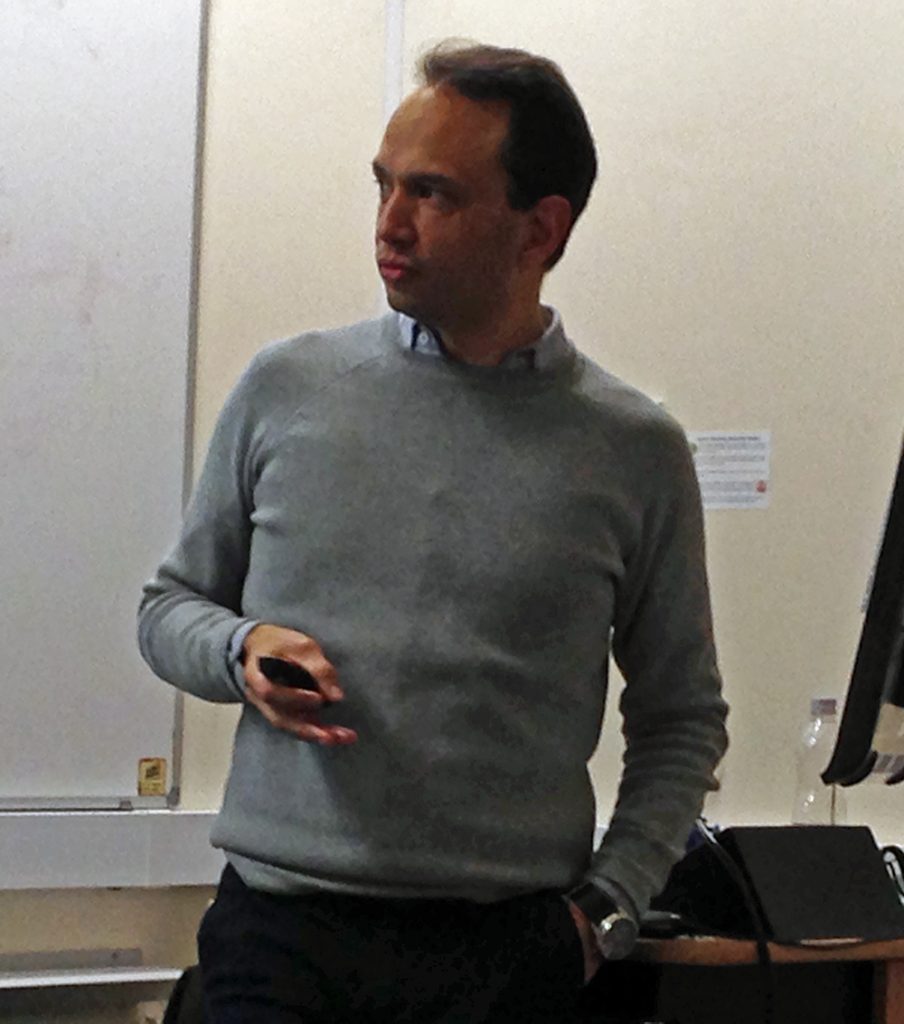CeCIL began the new semester with a fascinating talk on 24 January by Dr Carols Bernal of Macquarie University entitled ‘Transitional Constitutionalism and the Colombian Peace Process.’
Given that the peace process implementation scheme is just beginning after numerous negotiations between the Colombian government and the FARC guerrillas (and given the unexpected rejection of the original agreement when it was submitted to the voters as a referenda), Carlos’s talk could not be more timely. In addressing the many potential challenges ahead, Carlos highlighted how the Colombian case differs from most other situations of transitional justice in that it is engaging in the peace process while maintaining its existing constitution. The unorthodox character of this arrangement stems from the commonplace notion that a nation in need of transition faced violence and strife that the existing constitutional order was unable to cope with and as a result, the formation of a new constitution is in order to achieve the goals of transitional justice. Here the paradigmatic example is South Africa where the apartheid legal order was replaced by with a constitution that sought to address this legacy with numerous, innovative human rights provisions. However, in Colombia by contrast, the 1991 Constitution already enjoys a high degree of legitimacy amongst the people and thus there are no overwhelming demands for its replacement.
Given the fact that there is already an existing body of established constitutional law, the implementers of the peace process are, on the one hand, constrained by the constitutionality of their proposed actions and, on the other hand, risk delegitimising their endeavours if the peace process’s provisions fall beneath the constitutional standards citizens are currently accustomed to. On the issue of constraint, given that the Colombian Constitution directly applies international human rights standards in accordance with the Inter-American Human Rights system and the International Criminal Court (ICC), this may limit the possibilities for political participation by individuals who may be liable for breaching human rights standards. This is especially relevant given that the ICC has been recently focusing on Colombia as a possible fulfilment of its ongoing quest to finally try a non-African case. On the issue of delegitimisation, Colombia has long had a robust scheme for providing reparations for victims of violence. Under the peace deal, however, the amount an individual victim can claim is significantly lower than what one could previously expect. Furthermore, given the sheer number of victims of the armed conflict the state is severely behind in providing redress. These are just a few of the many important issues that we have every reason to believe will become more prevalent in the years to come.
Moreover, these tensions between the existing constitution and the goals of the peace process are compounded by the tensions that already exist within transitional justice. After all, this field is beset by debates ranging from ‘truth’ versus ‘punishment’ to ‘democratic participation’ versus ‘technical expediency’ amongst many others. In Colombia, these issues will have to be navigated on top of an already complex constitutional terrain. While challenges ahead are very real and raise deep questions of the law’s ability to provide just and peaceful outcomes under such difficult conditions, it was certainly a pleasure to hear Carlos break down these multifaceted and profoundly important issues in such a comprehensive and engaging fashion.

